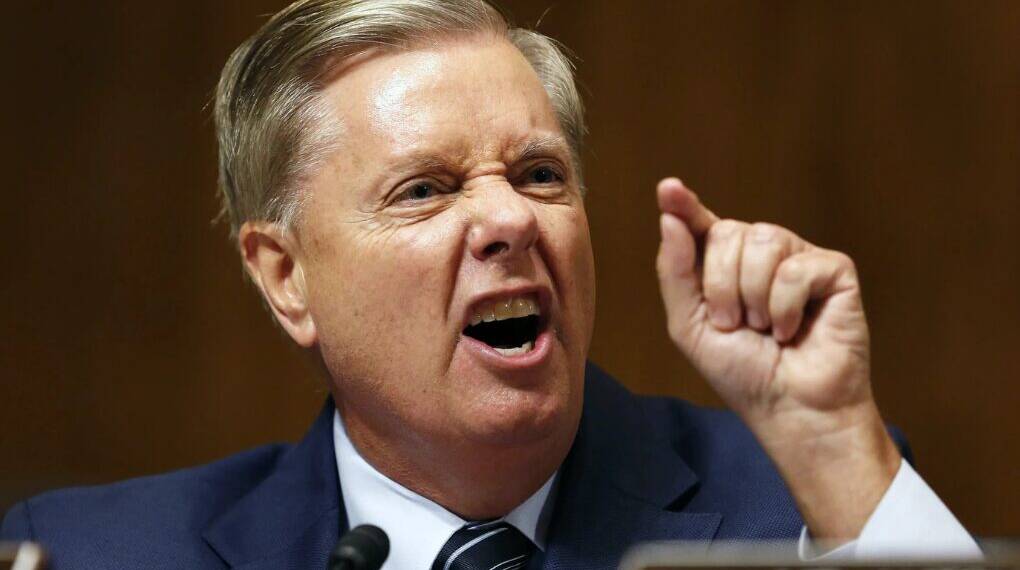South Carolina Senator Lindsey Graham, one of the most influential Republican voices on US foreign policy, has triggered outrage in India after directly blaming New Delhi’s purchases of Russian crude for civilian deaths in Ukraine. His comments, made in the wake of a deadly Russian strike on Kyiv, underscore the growing friction between Washington and India as Donald Trump’s administration enforces punitive trade measures.
Graham’s Sharp Rebuke to India
On Wednesday, Graham reacted to a Russian bombardment in Kyiv that killed at least 23 civilians, including children. In a strongly worded post on X, the senator lashed out at nations still importing Russian oil.
“India, China, Brazil, and others who prop up Putin’s war machine by buying cheap Russian oil: How do you feel right now that your purchases have resulted in innocent civilians, including children, being killed?” Graham wrote.
Aligning closely with Trump’s economic nationalism, Graham added that India is “experiencing the cost of supporting Putin” — a warning that harsher sanctions and tariffs could follow.
Trump’s Tariffs and India’s Economic Concerns
The Biden-era 25% tariffs on Indian exports were expanded under Trump to a sweeping 50% duty, specifically targeting trade flows linked to Russian crude. According to US estimates, nearly $48.2 billion worth of Indian goods could be impacted, raising fears of job losses and slowing exports.
Graham has gone further by introducing a Senate bill proposing tariffs of up to 500% on imports from countries that continue purchasing Russian oil. His bill has bipartisan backing with over 80 co-sponsors and seeks to give the US president authority to impose sweeping penalties on non-compliant nations.
A Hawk on Defence and Russia
Lindsey Graham, born in South Carolina in 1955, has built his reputation as one of Washington’s most hawkish voices on defence. A former Air Force Reserve colonel and Bronze Star recipient, Graham has consistently argued for strong military engagement abroad.
He has described cutting off Russia’s oil and gas revenue as the “only way to end Putin’s war machine.” On Fox News last month, Graham said:
India and China buy 70% of Putin’s oil. They keep his war going. Without oil revenue, Russia collapses.”
Graham’s Political Journey
A career politician, Graham entered the Senate in 2002 after serving in the House of Representatives. While once considered a centrist Republican willing to work with Democrats, he has since shifted toward the GOP’s hardline wing, particularly on foreign policy.
Perhaps the most dramatic shift in his career has been his relationship with Donald Trump. Once a vocal critic who called Trump a “jackass” and “race-baiting xenophobe,” Graham has since become one of Trump’s closest allies. After reconciling in 2017, Graham became a fixture in Trump’s inner circle, often spotted golfing with him and defending him on television.
By 2024, Graham was not only a campaigner for Trump’s re-election but also an architect of the administration’s aggressive foreign and trade agenda.
India in the Crossfire
India has defended its continued purchase of discounted Russian crude, arguing that it serves the nation’s energy security and economic stability. Indian officials insist that the oil trade is conducted within international law and does not violate sanctions.
However, Washington’s tightening grip — through tariffs, sanctions, and political pressure — places India in a precarious position. As Graham escalates rhetoric linking Indian oil purchases directly to civilian deaths in Ukraine, New Delhi faces mounting diplomatic pressure alongside significant trade risks.
the big picture
For Graham, the current strategy is clear: squeeze Russia’s energy revenues while punishing countries that provide Moscow with economic lifelines. For India, however, the path forward is far more complex — balancing its energy needs, trade partnerships, and long-term strategic autonomy in a rapidly polarising world order.








